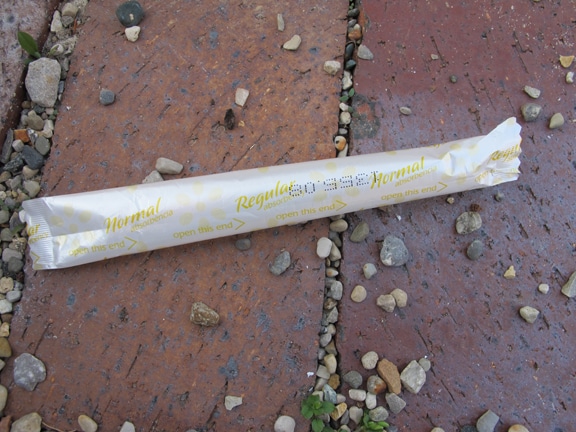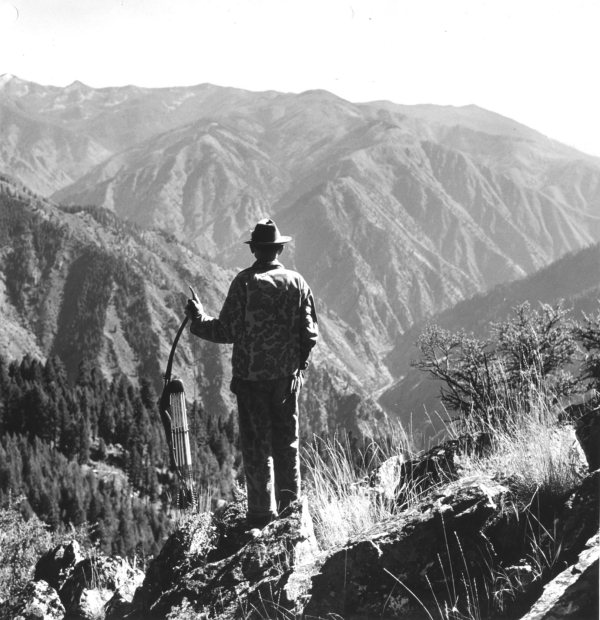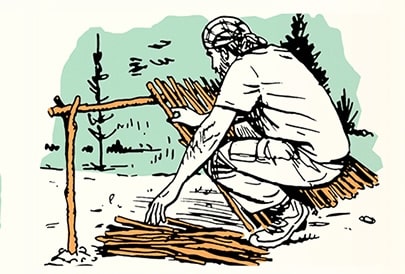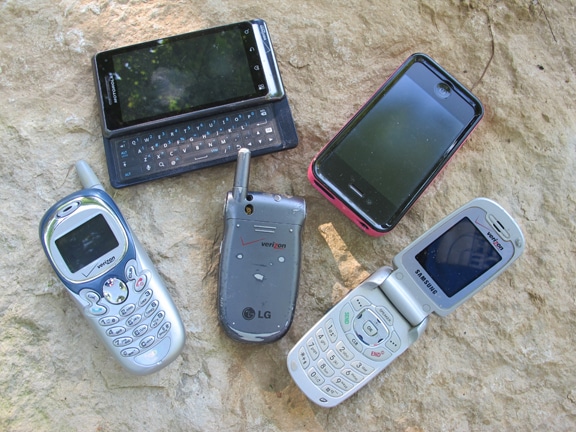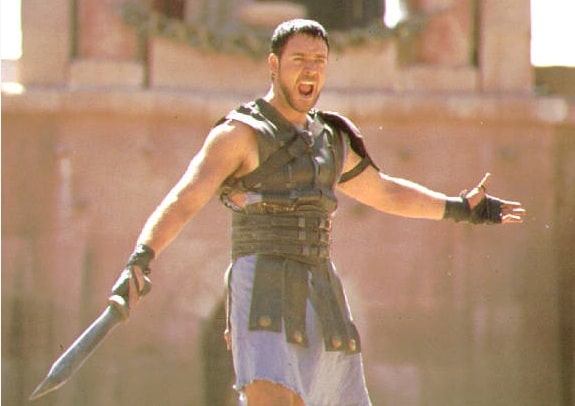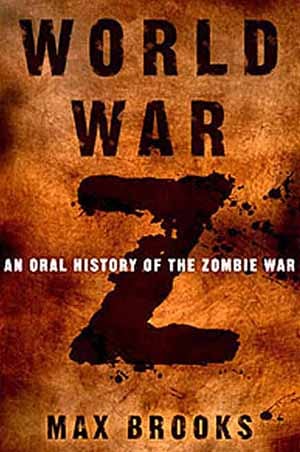
Before World War Z was ever a Brad Pitt flick, it was a bestselling book. It tells the story of the zombie apocalypse as a series of interviews conducted by our journalist narrator. These interviews are taking place years after the zombie war has ended, which makes it a unique telling of the popular genre. What really sets it apart from those other cheap zombie thrills is that it focuses largely on how individuals, communities, and governments would react to such a scenario. It’s almost more of a fictional sociology textbook rather than a novel.
Because of that, survival lessons abound. Whether in the actual apocalypse, or just a localized natural disaster (like what we experienced a couple weeks ago here in Colorado), these are lessons that anyone and everyone can start applying.
It took freak flooding in the city I live in to teach me the lesson that being prepared for disasters isn’t just for folks who are hardcore, it’s for people who are smart and want to come out the other end with their families and communities intact.
It’s Not If, But When
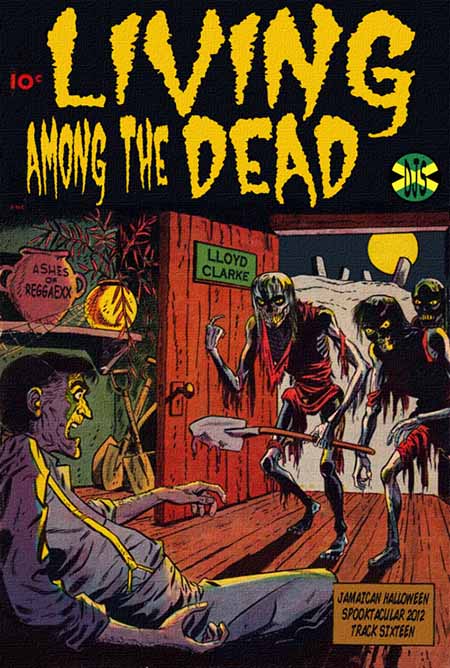
“Most people don’t believe something can happen until it already has. That’s not stupidity, that’s just human nature.” –World War Z by Max Brooks
We’ve discussed this mantra of Creek Stewart’s a few times on the site before. We’ve also explored the psychology of human nature that impedes most of us from embracing it and believing that bad, catastrophic things will ever happen. It was this type of thinking that kept people from understanding the reality of World War Z. People, and even entire governments, saw signs of impending doom, but nobody could really believe it, and so proper measures were taken far too late.
Now, this isn’t to say you need to become a hardcore doomsday prepper (however, if you’d like to be, this is a great website). But to go through life in utter ignorance will only serve to hamper any kind of future survival efforts needed on your end. Unexpected things happen every day. You probably won’t encounter the zombie apocalypse in this lifetime, but wildfires, tornadoes, and even winter storms seem to get stronger and stronger. The recent fire near Yosemite and the tornadoes in Oklahoma over the summer should serve as sobering reminders of this. Browse through our large collection of survival articles and at the very least begin informing yourself of what to do or which supplies to have on hand in various situations. Also check out a new favorite show of mine, Dual Survival. It pairs a hippie, barefooted survivalist/naturalist with a red-blooded, meat-eating military man in various survival scenarios. They utilize their vastly different tactics to survive, which makes for some great entertainment, but also real-life lessons as well.
Of course knowing how to do something intellectually and knowing how to actually put it in practice in the real world are two very different things. So strongly consider taking some first aid classes, signing up for some hands-on survival courses with Creek himself, and practicing DIY skills at home, because…
Zombies Don’t Care About Your PowerPoint Skills
“To be perfectly candid, our supply of talent was at a critical low. Ours was a postindustrial or service-based economy, so complex and highly specialized that each individual could only function within the confines of its narrow, compartmentalized structure. You should have seen some of the ‘careers’ listed on our first employment census; everyone was some version of an ‘executive,’ a ‘representative,’ an ‘analyst,’ or a ‘consultant,’ all perfectly suited to the prewar world, but all totally inadequate for the present crisis. We need carpenters, masons, machinists, gunsmiths…We needed to get a lot of white collars dirty.”
We live in a service economy. Almost everyone I know spends the majority of their day in front of a computer, including me. Our modern job descriptions largely rely on our mind rather than our physical skills in order to get work done. Surely, this is a sign of a society that has achieved technological progress. And yet, there may very well come a time when none of that matters. Even in small instances — your toilet clogs, your car sputters to a stop, your roof pops a leak — your intellectual, business-based problem-solving skills (like knowing how to put together a PowerPoint presentation or market a new product) aren’t very much help. Lacking the basic knowledge and the right tools to fix those types of issues, we often end up outsourcing them to blue collar professionals.
Having some basic “blue collar” skills to complement your “soft” skills will not only save you boatloads of money in contracting work, it will come in handy in survival scenarios, particularly when it comes to rebuilding from catastrophe. Instead of needing to sit around on your hiney, you can actually take part in the physical rebuilding of a society (or community) that has seen ruin.
So how do you learn these types of skills? The simplest answer is to just try things out. When something goes awry in your home, see if you can fix it first, before calling your handyman. If you’re careful, you can do a lot more than you’d expect. I had a water line to my swamp cooler get chewed through by squirrels earlier this summer. I promptly spent $100 to have a local handyman come and fix it. Sure enough, the squirrels got it again just a week later. At the gentle prodding of my wife, I attempted to fix it myself the second time around, and was able to do it for $4. All it required was a replacement line from the hardware store, a screwdriver, and a pair of pliers. I sure felt stupid.
Additionally, be sure to have a good collection of basic tools. Having the right tool for the job at hand will save more headaches than your Advil. Also, it won’t hurt to know how to properly use those tools.
Practice Self-Reliance Before You Need It
“These were the people who knew how to take care of themselves, how to survive on very little and work with what they had. These were the people who tended small gardens in their backyards, who repaired their own homes, who kept appliances running for as long as mechanically possible.”
Not only will having DIY skills help you rebuild your community, they also greatly increase your self-reliance. Coupling basic mechanical prowess with the ability to attain your own food, shelter, clothing, etc. ensures you won’t be a sitting duck if the world goes to pot. Self-sufficiency is something that men have strived for since the beginning of time. Thousands of years ago, it was necessary to be able to create shelter and hunt your food, but we’ve obviously lost that necessity in our modern age. Should the unthinkable happen (like a Sharknado), we will likely revert back to a time where such things were part of everyday life.
If the grocery store had no groceries, would you know how to grow fruits and vegetables to feed your family? Would you be able to care for chickens so you could put some meat and eggs on the table? If your clothes got torn up from your afternoon hunt, would you be able to repair them? Or even make new clothes with some fabric that you have lying around? Would you know how to purify water when your drinking water runs out? These are all questions of self-reliance. You don’t want to owe people something when they have to do favors for you, as you’ve not ever had to supply anything for yourself.
Relying on yourself for your needs would also mean that you’d take better care of what you do have. You couldn’t just go to the store to replace your bag or your tools or your clothing. When you know you have one tool and you have to make it last, you can be darn sure that it’ll stay close to you and you’ll treat it with more care than throwing it around the garage, knowing it’s only a couple bucks at the nearest hardware store. Waiting to be self-reliant until you need to be self-reliant means that you won’t be able to be self-reliant, and then you’re in a pickle.
Basic Physical Fitness is Paramount
“Make no mistake, bipedal locomotion was how most people traveled in the beginning.”
In an actual apocalypse, trying to get around in our gas-powered vehicles won’t do much good. Traffics jams of stalled cars that are miles long will be the norm in every big city. And even if you could get through, America’s infrastructure of roads, highways, and bridges is already nearing the end of its intended lifespan. Without repairs being a priority, our paved byways will become paths for traveling on foot. You best make sure you’re up to snuff!
Whether you’re lost in the woods from an afternoon hike or in the midst of the zombie apocalypse, the simple act of walking may make the difference between life and death. Many people in our overweight society believe that being able to walk a mile or two is an athletic accomplishment. In survival situations, however, you may need to walk a couple dozen just to live another day.
We have a great post on the benefits of walking that you should read right after you’re done reading this article. The nice thing about this lesson is that it’s fairly easy to accomplish. You don’t need to be a CrossFit all-star to survive. That can certainly help, but having even a basic level of fitness puts you a step up (pun intended) from most other people. Being able to run a marathon is great, but being able to walk or hike 5 miles before the sun goes down is much easier and could very well save your life. Every day or night, start with a brisk one-mile walk down the street. It should only take 15-20 minutes, and you can even listen to podcasts or have a nice chat with your loved ones on the way. When you feel good about that, increase your mileage, and make your daily walk a new ritual.
Relationships Matter, Even in the Apocalypse
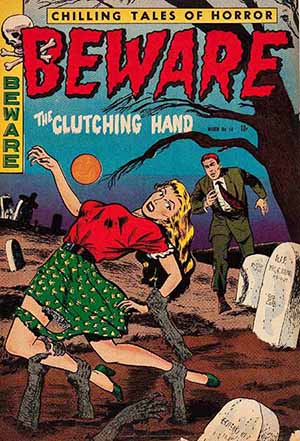
“You’ve spent most of your life reviewing contracts, brokering deals, talking on the phone. That’s what you’re good at, that’s what made you rich and what allowed you to hire a plumber to fix your toilet, which allowed you to keep talking on the phone. The more work you do, the more money you make, the more peons you hire to free you up to make more money. That’s the way the world works. But one day it doesn’t. No one needs a contract reviewed or a deal brokered. What it does need is toilets fixed. And suddenly that peon is your teacher, maybe even your boss.”
Human relationships get overlooked in the midst of apocalypse talk. Even though it’s all fiction, take a look at the great post-apocalyptic media out there (The Walking Dead, The Stand, World War Z) and one of the single greatest determining factors in survival is how you get along with others. You may be self-reliant and physically fit, but you can almost guarantee there will come a time when you’ll need the help of another person. Beyond that, community is paramount for psychological health as well, something of almost equal importance in survival scenarios.
Our jobs tend to have pretty defined hierarchies. This should go without saying, but treat everyone (secretaries, janitors, security guards, doormen) in your office and building just as you would a peer. Beyond being a kind gentleman, those people may very well save your life someday. It wasn’t until a gunman scare at an office building where I used to work that I had daily conversations with our security guards. Sure, I’d say hi in the morning and goodbye in the evening, but I never really got to know them. When I realized how important they were to our building, I took them a little more seriously. Don’t make the same mistake I did. Get to know the people around, no matter their level in your business or personal hierarchy.
The Latest and Greatest Technology Isn’t Always the Greatest
“Americans worship technology. It’s an inherent trait in the national zeitgeist. Whether we realize it or not, even the most indefatigable Luddite can’t deny our country’s techno-prowess.”
Technological advances are a fantastic thing. They provide entertainment, enjoyment, efficiency, convenience…and the list goes on. There is also a downside, however, particularly when it comes to survival scenarios. If we become too dependent on new technologies, it can hamper our survival efforts.
The Colorado flash flood of a few weeks ago shows just how true this is. A couple small towns called Jamestown and Estes Park were completely cut off from the world by raging flash flood waters. All communications were down; no cell phone reception, no landlines, no internet — you get the picture. So how did the people in those towns communicate with the outside world? Ham radio. It was hobbyists and old timers that knew how to get onto radiowaves and communicate with emergency personnel.
The more forms of technology you’re familiar with using – from the hammers and saws of our grandfathers to the complex electronics boards of modern men – the more problems you’ll be able to solve, the more useful you’ll be to others, and the greater the chances of your survival.
Don’t Wait for Tragedy to Become a Part of Your Community
“I’m not going to say the war was a good thing. I’m not that much of a sick f**k, but you’ve got to admit that it did bring people together.”
Tragedy and natural disaster have a way of bringing people together. We see this play out in communities large and small every single year. In many ways this is obviously a good thing. It’s often adversity that brings people together and makes them stronger, and then tighter neighborly bonds are forged. Better late than never.
I believe, however, that there is another lesson in this. We don’t have to wait until tragedy strikes to form bonds with our community. When you’re friends, and you have people you can trust, those inevitable survival scenarios will be much easier to get through. Take this as a reminder to go say hello to the neighbor you haven’t met yet and to get out and volunteer in your community. The tighter bonds you have now, the better off you’ll be when waves of zombies are approaching.
What survival lessons did you learn from World War Z? Or other zombie stories?


